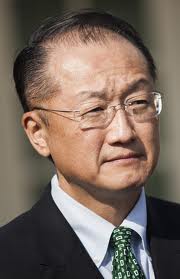By Omoh Gabriel
IMF, World Bank and World Trade Organisation have urged global leaders to reinvigorate trade to boost global economic growth.
The call was made by Ms. Christine Lagarde, Managing Director of the International Monetary Fund (IMF), Mr. Jim Yong Kim, President of the World Bank, and Mr. Roberto Azevedo, Secretary-General of the World Trade Organisation (WTO) on the heels of the G20 Leaders’ Summit in Hamburg, Germany.
A joint statement issued by the heads of the three multilateral institution said “The economic wellbeing of billions of people depends on trade. Deeper trade integration twinned with supportive domestic policies can help boost incomes and accelerate global growth. This calls for decisive actions by world leaders gathering for the G-20 Summit this week.
“The good news is that when it comes to trade, we do not need to choose between inclusiveness and economic growth.
“Evidence shows that opening of economies to trade, especially in the late 20th century, boosted incomes and living standards across advanced and developing countries. Since the early 2000’s, however, the pace of opening has largely stalled, with too many existing trade barriers and other policies that favour chosen domestic industries over the broader economy remaining in place, and new barriers being created. Such policies can cause a chain reaction, as other countries adopt similar measures with the effect of lowering overall growth, reducing output, and harming workers.
“Reinvigorating trade, packaged with domestic policies to share gains from trade widely, needs to be a key priority. One part of this is to remove trade barriers and reduce subsidies and other measures that distort trade. Stepping up trade reform is essential to reinvigorate productivity and income growth, both in advanced and in developing countries.
“But these reforms also require thinking in advance and during implementation about those workers and communities that are being negatively affected by structural economic changes. Even though job losses in certain sectors or regions have resulted to a larger extent from technology than from trade, thinking in advance about the policy package that shares trade gains widely is critical for the success of trade reforms. Without the right supporting polices, adjustment to structural changes can bring a human and economic downside that is often concentrated, sometimes harsh, and has too often become prolonged.
“This is why governments must find better ways of supporting workers. Each country needs to find its own mix of policies that is right for their circumstances. Approaches such as a greater emphasis on job search assistance, retraining, and vocational training can help those negatively affected by technology or trade to change jobs and industries. Unemployment insurance and other social safety nets give workers the chance to retool.
“Education systems may also be important to prepare workers for the changing demands of modern labor markets; that requires a commitment to life-long learning, from early childhood education, to workplace training, to online courses for seniors, just to name a few. In addition, housing, credit, and infrastructure policies could be designed so as to ease worker mobility.
“Recent analysis by the IMF, World Bank, and WTO shows that, when it comes to trade, we do not need to choose between inclusiveness and economic growth. Now is the time to press ahead with trade reforms that can deliver greater prosperity for all.”

